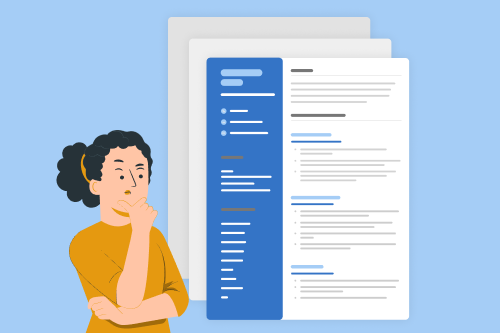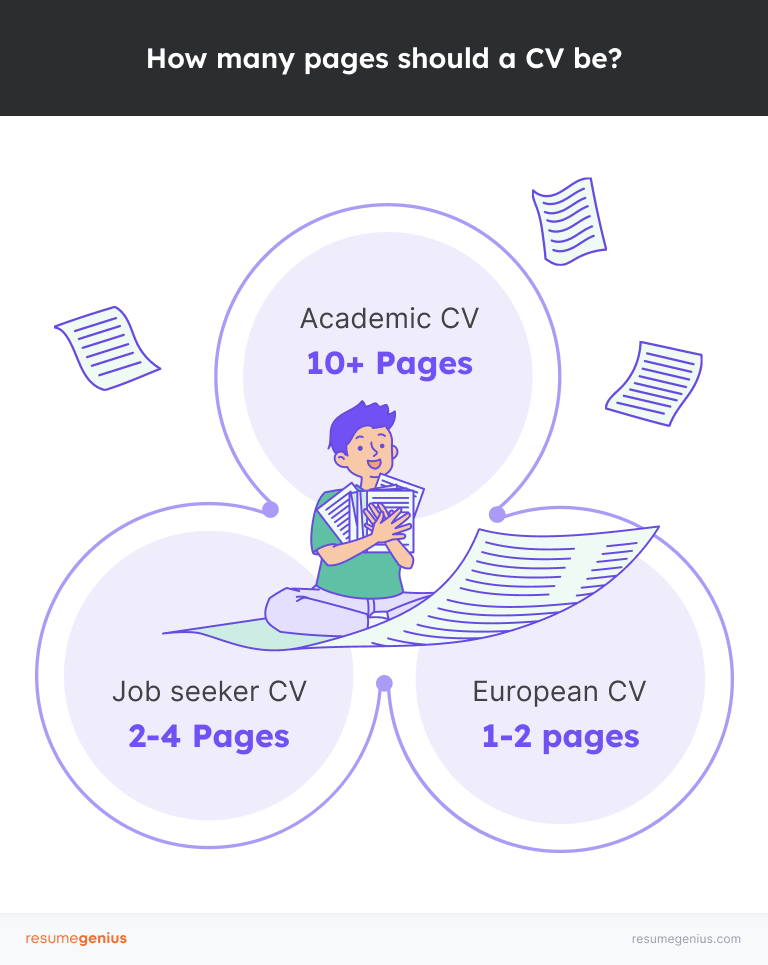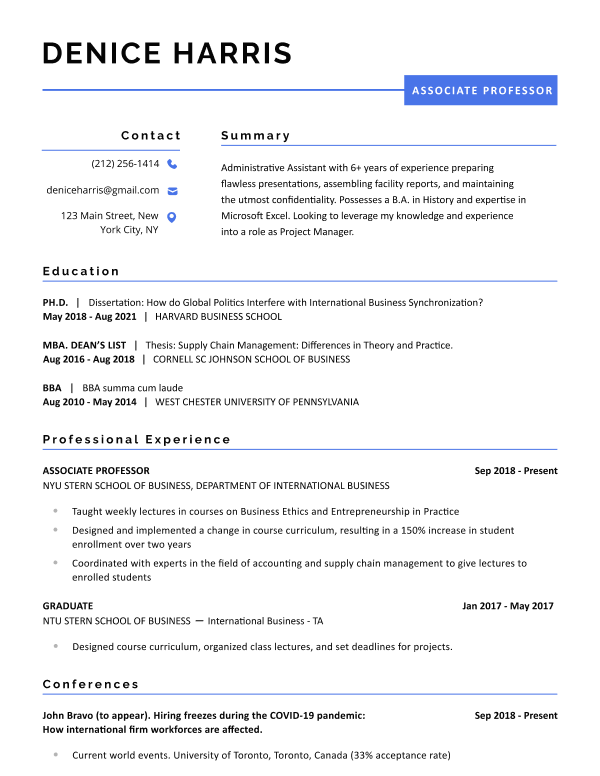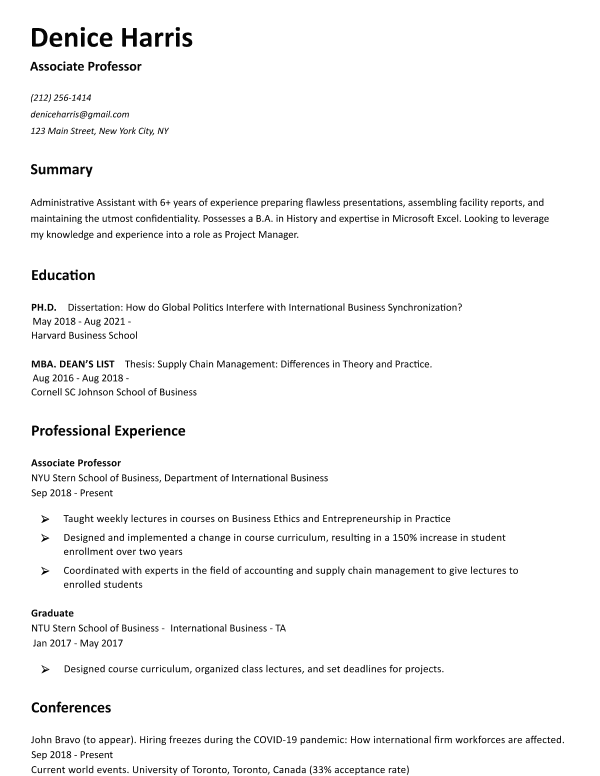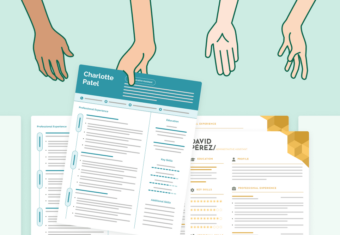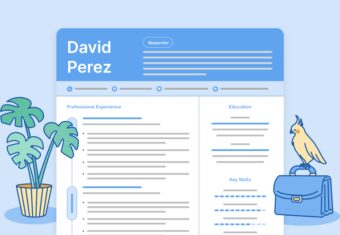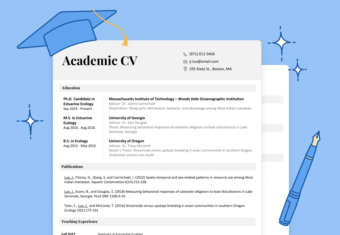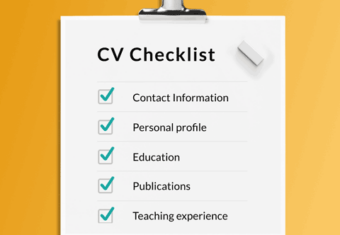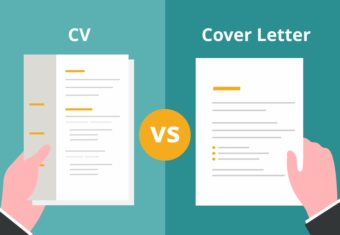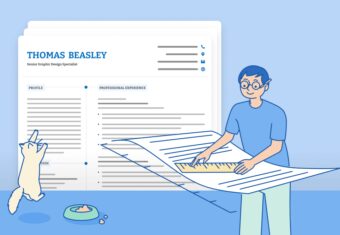When you’re writing your CV, one of the first questions you’ll ask yourself is “how many pages should my CV be?”
It’s important to land a balance between knowing what to include on your CV to showcase your qualifications and keeping your application concise.
Below, we’ll explain what the optimal length for your CV is, no matter what kind of role you’re applying for. We also provide 5 tips on how to shorten your CV when you’re having issues deciding what to cut.

Ever been asked to submit a CV? Learn what a CV is and when you need to use one by reading our expert-written guide.
What is the right CV length?
How long your CV should be depends on the type of CV you’re writing. Here are three different types of CVs with the recommended length for each:
For an academic CV
An academic CV is an application document used in the US to apply for positions in academia. Academic CVs are often 10 pages or longer, because they cover everything from a candidate’s education history to their publications.
If this is the kind of CV you’re writing, there is no length limit. Include as much information as you can about your academic expertise, publications, and research experience.
For a job seeker CV
Some employers will ask you to submit a CV, not a resume. For example, if you’re a medical professional, researcher, or scientist, you’ll often have to include a CV with your application.
These roles typically require more details related to your qualifications, and therefore a longer CV. Usually 2-4 pages will be enough for most applicants, but if you have a long career behind you, it’s okay to go submit a longer CV.
For a European CV
In Europe, the term “curriculum vitae” is used to refer to what Americans call a resume. While there are some differences between a CV and a resume, they’re mostly synonymous. If you’re looking for work in a European country, your CV should be 1-2 pages long.
Not sure how to write a European CV? Create a Europass CV and you won’t have to worry about formatting.
Should a CV be one page?
Yes, a CV should be one page if you’re applying for an entry-level position and don’t have enough experience to fill two pages or more yet. Just because your CV is only one page long doesn’t make it less impactful.
In fact, a shorter CV is preferred over a longer document full of irrelevant experience that won’t help you succeed in the role you’re applying for.
Our free-to-use cv builder can make you a cv in as little as 5 minutes. Just pick the template you want, and our software will format everything for you.
How to shorten your CV
If you find it difficult to fit all of your information on two pages, here are five steps you can take to shorten your CV.
1. Pick the right template
The right CV template can significantly reduce the length of your CV. Avoid templates with graphics, skills bars, and wide headers. Instead, go for a template with a simple layout.
Not only will a clean template help make your resume shorter, but recent resume statistics show that more than 40% of employers prefer templates without distracting design elements.
2. Focus on achievements not responsibilities
A common mistake job seekers make is turning their CVs into lists of responsibilities they held in previous jobs. Unless you’re in the process of a career change, potential employers will have a pretty good idea of the kind of work you did in the past.
For example, if you’re a nurse, employers will assume that your past job duties included looking after patients and collaborating with doctors and other nurses. If you were to list everything you were responsible for, your CV would be much longer than it needs to be to prove you’re qualified for the position.
To prevent making your CV too long, focus on emphasizing your professional achievements. Here’s an example of a well-written entry on a nursing resume that showcases the candidate’s accomplishments while also highlighting their abilities:
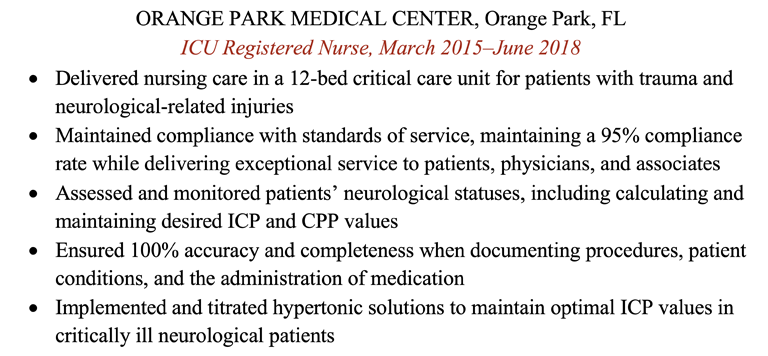
3. Adjust your formatting
The quickest way to make your CV shorter is to tweak your formatting. By optimizing the layout, you can condense the content and create a more concise application. Here are a few formatting adjustments you can make:
Adjust your margins – Change the margins of your CV to fit more content on each page. However, never go below ½”.
Change your font size – Many templates use a 12-point font size. If you need more space, you can reduce it to 10 points. Anything smaller than that will make your CV difficult to read.
Remove white space – Sometimes there’s excessive white space between sections or under headings. Reduce these spaces to minimize unnecessary gaps on your CV.
4. Match the job description
Another way to keep your resume concise is to try to match it as closely as possible to the job ad. This will ensure you’re not including irrelevant information the employer doesn’t need to know.
Including additional sections on your CV, such as languages or hobbies, can show that you’re a well-rounded candidate. But if you’re already short on space and they’re not relevant to the job, it’s better to leave them out.
Similarly, if you have numerous years of experience in your field, it’s not necessary to include that part-time job you had in college 15 years ago.
5. Proofread your CV
For many job seekers, writing a CV is the most challenging part of the job hunt. You might want to get it over with as soon as possible, but it’s worth spending a few extra minutes proofreading your CV.
In addition to allowing you to catch any mistakes you missed during the writing process, it will give you an overview of your CV which makes it easier to spot any redundant bullet points or other information that is making your document unnecessarily long.
Ask a friend or family member to take a look at your CV in case you’re still struggling to shorten it.


